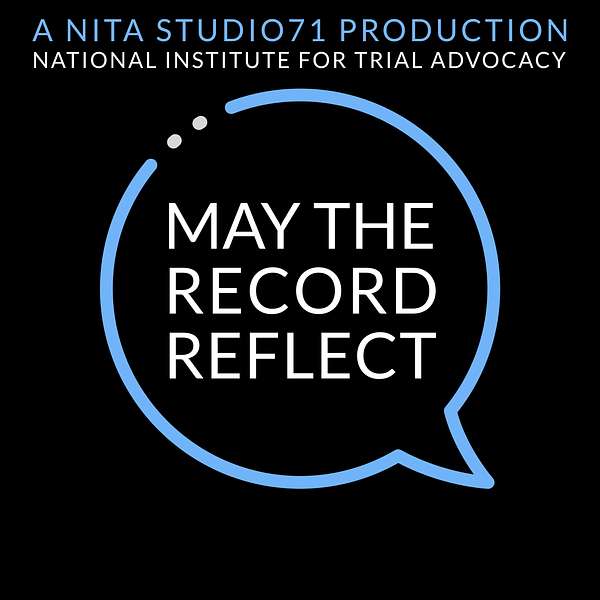
May the Record Reflect
May the Record Reflect
7. The Write Stuff with Catharine DuBois
Use Left/Right to seek, Home/End to jump to start or end. Hold shift to jump forward or backward.
In Episode 7 of May the Record Reflect, we’re joined by Brooklyn Law School Assistant Professor of Legal Writing Catharine DuBois. Catharine serves as Program Director for NITA’s courses in persuasive writing, including an online version that starts next week. Among the topics she discusses with host Marsi Buckmelter are the importance of prewriting activities, organizing your document on the macro and micro levels, getting past writer’s block, creativity and the editorial process, and how to proofread your own work.
Topics
3:09 What lawyers typically want to improve in their writing
3:53 A good timeline for your writing project
5:55 A crucial step that lawyers often omit
6:45 Outlining and writer’s block
8:28 Considerations about a writer’s audience
9:11 “What is the point?”
10:10 The importance of prewriting document organization
11:50 “The test”
13:36 Developing your writing muscle
15:55 Overcoming writer’s block
18:40 Shutting down your inner critic and perfectionism
22:56 Why it’s ok that your first draft stinks
24:40 Two tips to come back to when you’re stuck
28:26 Words for listening versus words for reading
29:20 Reading your drafts aloud as an editing tool
31:12 The challenge of proofreading
34:45 Whether to draft by hand or by keyboard
36:43 Catharine’s current writing project
40:44 “Signature softball” question
Quote
“Nobody is writing a good first draft, and so what happens with my students and with my practitioners is, they get caught up in this idea that ‘I need to put into my reader’s ear the first draft, and if I can’t do that, I’m not a good writer.’ And what I encourage all of them to do is embrace what I was saying before: you’re going to write a writer’s-based first draft. It is for you, you are figuring it out, you are getting ideas on the page, and every single minute you spend doing that is useful to what you need to create in what we call the ‘shadow preparation’ for what you’re writing. Use it, make use of it, but reorganize it so it works for your final draft, which is for your reader, and be willing to edit it down to nothing if you need.” (Catharine DuBois)
Recommended Resources
Catharine DuBois—Brooklyn Law School
Writing Persuasive Briefs online course
The Artist’s Way, by Julia Cameron
Julia Cameron Wants You to Do Your Morning Pages (New York Times)
Bird by Bird, by Anne Lamott
Anne Lamott’s Sh!tty First Drafts essay